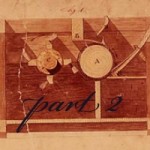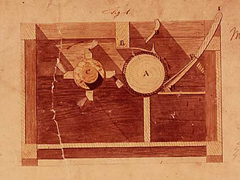 Patents have been part of American life since the country was born—they were written into the constitution to legally protect and encourage innovation, creativity, and productivity. But today, patents are used by shadowy companies that make nothing more than profits—and the threat of lawsuits from these companies is enough to keep people from creating high-tech products, companies, and jobs. This episode of This American Life shines a bright light on the broken intellectual property legal system by telling the stories of people whose lives have been profoundly impacted by that system.
Patents have been part of American life since the country was born—they were written into the constitution to legally protect and encourage innovation, creativity, and productivity. But today, patents are used by shadowy companies that make nothing more than profits—and the threat of lawsuits from these companies is enough to keep people from creating high-tech products, companies, and jobs. This episode of This American Life shines a bright light on the broken intellectual property legal system by telling the stories of people whose lives have been profoundly impacted by that system.
thisamericanlife.org/radio-archives/episode/496/when-patents-attack-part-two
Category: 4.6 Software Piracy and Intellectual Property Laws
We’ve heard about how 3D printers can be used to manufacture toys, small machine parts, and even some prosthetic devices for human bodies. But as applications emerge, so do some difficult questions.
- According to this Wired story, a printed car might soon share the road with you. But for legal reasons, it might technically be a motorcycle.
- This NPR story explores some of the intellectual property questions raised by 3-D printers.
- It’s one thing to print a figurine of a copyrighted comic book character; printing a lethal weapon is something else altogether.
This NPR story explains how 3-D printers muddy the waters in the debate over gun safety.
Was Bob Dylan a creative genius or a thief? What about Steve Jobs? Or that kid down the block who posts cut-and-paste videos on YouTube? In this entertaining short TED talk, Kirby Ferguson argues that every creation is, to some degree, a remix. Do our intellectual property laws need to change to embrace, rather than outlaw, remixes?
ted.com/talks/kirby_ferguson_embrace_the_remix.html
 Patents were originally designed to encourage creativity, but in the digital world they may be having the opposite effect. This engaging episode of public radio’s This American Life takes us inside the trenches of the intellectual property wars.
Patents were originally designed to encourage creativity, but in the digital world they may be having the opposite effect. This engaging episode of public radio’s This American Life takes us inside the trenches of the intellectual property wars.